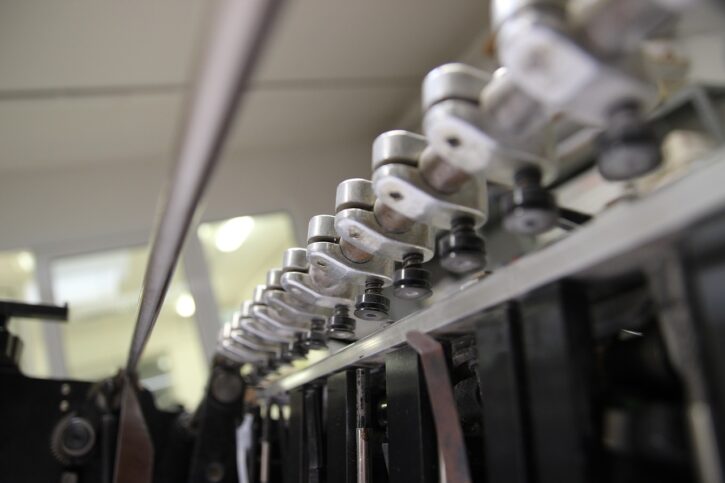
Press Brake vs. Panel Benders: Choosing the Right Tool for Metal Bending
The world of sheet metal bending offers a wide array of tools, each designed to address specific bending needs. Among these, press brake machines and panel bender stand out as the most commonly used. Both machines serve the same fundamental purpose bending metal but they differ significantly in functionality, efficiency, and application. Choosing the right equipment is crucial for optimizing your production process. Let’s explore these two technologies in detail to help you decide which one is best suited for your business.
What is a Press Brake Machine?
A press brake machine, often referred to simply as a press brake, is a versatile tool used for bending metal sheets and plates. This machine employs a punch and die system, where the punch applies force to the sheet metal, pressing it into the die to achieve the desired bend. These machines come in various types, including manual, hydraulic, and CNC-controlled models, each offering varying levels of precision and automation.
Press brakes are celebrated for their adaptability. They can handle diverse materials, including steel, aluminum, and copper, in a range of thicknesses. Whether you’re creating simple bends or intricate designs, a press brake provides the flexibility to meet your needs. For example, industries like construction, automotive, and aerospace often rely on press brake machines for producing customized metal components with unique geometries.
One of the key advantages of press brakes is their ability to accommodate different tooling setups. By changing the punch and die combination, you can produce a wide variety of shapes, angles, and bends. This makes the sheet metal brake an ideal choice for businesses requiring versatility and customization.
However, press brakes are not without their limitations. While they excel in flexibility, they require skilled operators, especially for manual or semi-automatic models. Additionally, the setup process for tooling changes can be time-consuming, which might slow down production for high-volume, repetitive tasks.
What is a Panel Bender?
A panel bender, on the other hand, is a specialized sheet metal bender designed for speed and efficiency in high-volume production environments. Unlike a press brake, which relies on a punch and die system, a panel bender clamps the sheet metal in place and uses automated bending arms to create the desired bends. This automation not only reduces manual intervention but also ensures consistent results across every piece.
Panel benders are highly effective for bending thin sheet metal into uniform shapes, such as panels for enclosures, cabinets, and other flat components. For industries like electrical manufacturing, HVAC, and appliance production, panel benders are often the go-to choice. The automated nature of panel benders allows them to produce large quantities of parts with unmatched precision, making them a time-saving alternative for repetitive tasks.
While panel benders offer significant advantages in speed and automation, they are less flexible than press brakes. These machines are typically designed for standard shapes and sizes, which limits their ability to handle custom or complex designs. Furthermore, the initial investment for a panel bender is considerably higher than that of a press brake, making it a better fit for businesses with a steady demand for mass production.
Comparing Press Brakes and Panel Benders
The choice between a press brake machine and a panel bender depends largely on your production requirements, budget, and the complexity of your designs. A press brake is a great all-around tool, offering versatility and cost-effectiveness for small to medium-sized projects. It allows operators to manually adjust settings, making it perfect for custom and complex bending jobs.
On the other hand, a panel bender is a powerhouse for high-volume production. Its automated system minimizes human error and increases efficiency, making it the ideal choice for standardized tasks. For instance, if your production line requires hundreds of identical panels each day, a panel bender can save you time and labor costs while delivering precise, repeatable results.
Applications of Press Brake Machines
A press brake machine finds application in a wide range of industries thanks to its flexibility. Metal fabricators use it to create everything from simple brackets to intricate metal components for machinery. The hydraulic press brake, in particular, is favored for its ability to handle thicker materials and provide higher bending force. Whether you need a metal bender for artistic metalwork or structural components, a press brake can adapt to your needs.
For businesses working with diverse materials and requiring frequent tooling changes, the press brake proves to be indispensable. Although its production speed may not match that of a panel bender, its ability to create unique bends and shapes compensates for this limitation.
Applications of Panel Benders
In contrast, a panel bender is best suited for industries where uniformity and speed are paramount. Manufacturers producing electrical enclosures, cabinets, or appliance panels benefit greatly from the machine’s automated functionality. It excels in repetitive tasks, producing large volumes of identical parts with minimal supervision.
Despite its limited flexibility, the panel bender’s precision and efficiency make it a valuable asset for companies with high-volume production needs. By reducing setup time and labor requirements, it ensures a smoother and faster workflow.
Factors to Consider When Choosing Between the Two
When deciding between a press brake and a panel bender, it’s important to evaluate several factors:
- Production Volume: If your business handles low to medium production volumes or frequently changes designs, a press brake is the better choice. However, for high-volume, repetitive tasks, a panel bender offers greater efficiency.
- Budget: A press brake, especially a manual or hydraulic model, has a lower initial investment compared to the more advanced panel bender. If cost is a concern, starting with a press brake is a practical option.
- Complexity of Designs: For custom designs or complex shapes, the adaptability of a press brake machine gives it the upper hand. A panel bender is limited to standardized designs and cannot match the creative freedom offered by a press brake.
- Speed and Automation: If you prioritize speed and automation to meet tight deadlines, the fully automated panel bender is the clear winner. Its ability to produce consistent results with minimal manual intervention is unmatched.
Conclusion
Both press brake machines and panel benders have their own strengths, and the right choice depends on your specific requirements. A press brake offers versatility, flexibility, and cost-effectiveness, making it ideal for businesses focused on custom designs and small to medium production runs. On the other hand, a panel bender is a high-speed, precision-driven solution for industries that demand large-scale production of uniform parts.
By carefully assessing your production needs, design complexity, and budget, you can select the right metal bending machine to enhance your operations. Whether you’re working with a hydraulic press brake, a CNC press brake, or a panel bender, investing in the right technology will ensure efficiency and accuracy in your metal fabrication projects.
For expert advice or assistance in choosing the best sheet metal bending machine for your business, feel free to contact us today!
- Have any Query?

